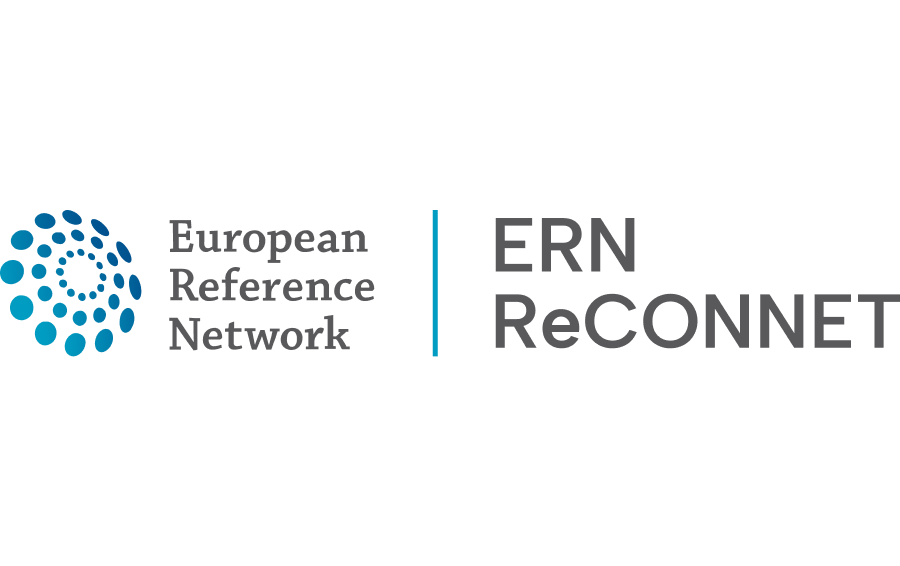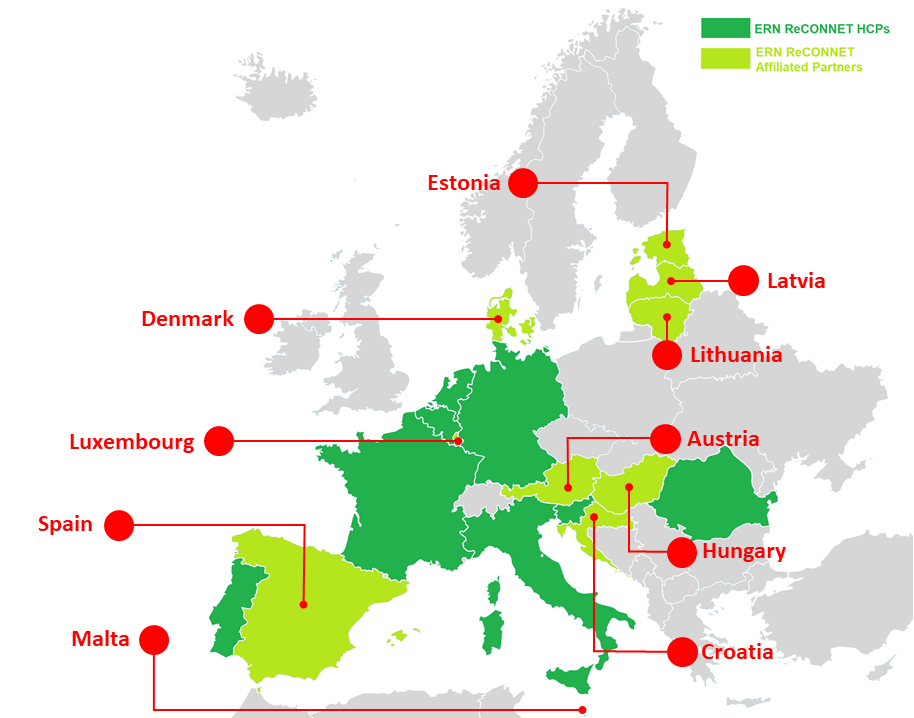Our Network Affiliated Partners
The purpose of European Reference Networks (ERNs) is to enable the sharing of expertise and to improve access to care for patients across the European Union, especially for complex or rare medical conditions that require highly specialised healthcare and a concentration of knowledge and resources. In order for ERNs to deliver genuine added value to all European Union Member States, legislation makes provision for Member States which do not have representation from a member within an approved ERN to participate through healthcare providers that are designated by their Member State as “associated” and or “collaborative” national centres. Member States may also wish to designate a national coordination hub with all types of Networks.
The ERN Board of Member States fully supports the objectives set out in the Commission Implementing Decision (2014/287/EU) and as well as to facilitate the participation in ERNs of as many as possible Member States, none of whose healthcare providers are Members of an approved Network as indicated in the Preamble (14) of the Commission Delegated Decision (2014/286/EU), in order to achieve the widest possible geographical coverage, exchange of knowledge and best practice.
Healthcare providers from those Member States might be designated as:
a. “Associated National Centres” focusing in the provision of healthcare,
b. “Collaborative National Centres” focusing on the production of knowledge and tools to improve the quality of care.
Member States may also wish to designate:
– a single national coordination hub with the remit to engage with all established Networks when appropriate, or;
– a national hub pertaining to a specific Network.
(Collectively, Associated National Centres, Collaborative National Centres and National Coordination Hubs are referred to as Affiliated Partners).
The designation of Affiliates Partners by their Member States must be undertaken through open, transparent and robust procedures. In order to facilitate and support the participation of designated Affiliated Partners, all ERN must have in place a clear policy objective for the active engagement and participation of Affiliated Partners from the outset. This must be underpinned by transparent rules and strategies that describe how Affiliated Partners can interact, participate and contribute to the ERN.
The Rules of Procedure should include a model of written cooperation agreements to be signed by the Affiliated Partners including, at a minimum, their specific role concerning their active involvement and obligation to follow the rules and procedures established by the Network, in accordance with the relevant operational criteria for the Networks.
The ERN ReCONNET affiliated partners are:
Austria
– Medical University Innsbruck, Center for Inherited and Autoimmune Connective Tissue Diseases, Department of Human Genetics (Associated National Centre)
Croatia
– University Hospital Centre Osijek (Associated National Centre)
Denmark
– Aarhus Universitetshospital (Associated National Centre)
– Copenhagen University Hospital – Rigshospitalet (Associated National Centre)
Estonia
– Tartu University Hospital (Associated National Centre)
Hungary
– Semmelweis University (National Coordination Hub)
Latvia
– Children’s Clinical University Hospital, Riga, Latvia (Associated National Centre)
– Pauls Stradins Clinical University Hospital, Riga, Latvia (Associated National Centre)
– Hospital of traumathology and orthopaedics (Associated National Centre)
Lithuania
– Hospital of Lithuanian University of Health Science Kauno Klinikos (Associated National Centre)
Luxembourg
– Centre Hospitalier du Luxembourg (National Coordination Hub)
Malta
– Mater Dei Hospital (National Coordination Hub)
Spain
– Hospital Universitari Vall D´Hebron (Associated National Centre)
– Hospital Infantil Universitario Niño Jesús (Associated National Centre)





